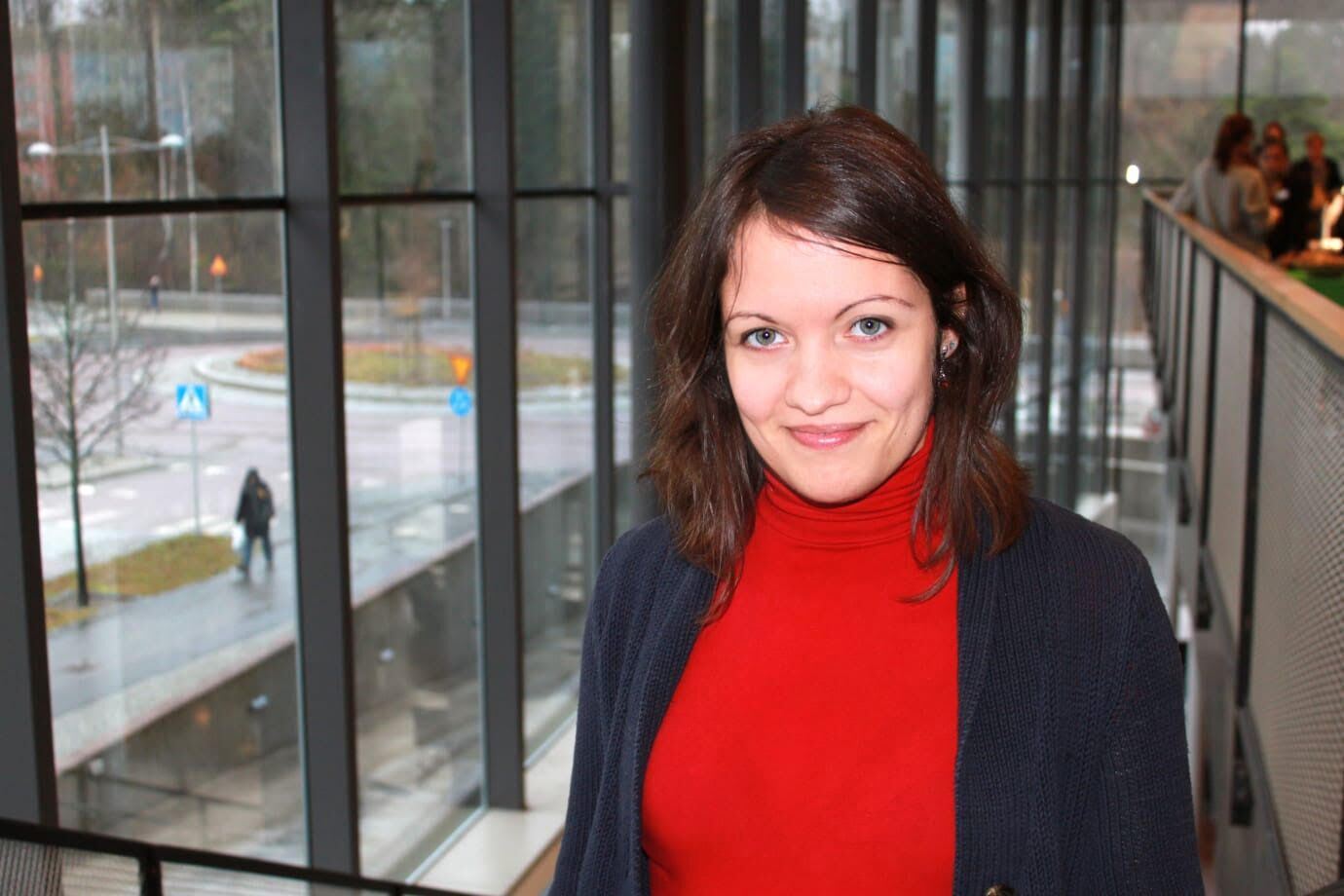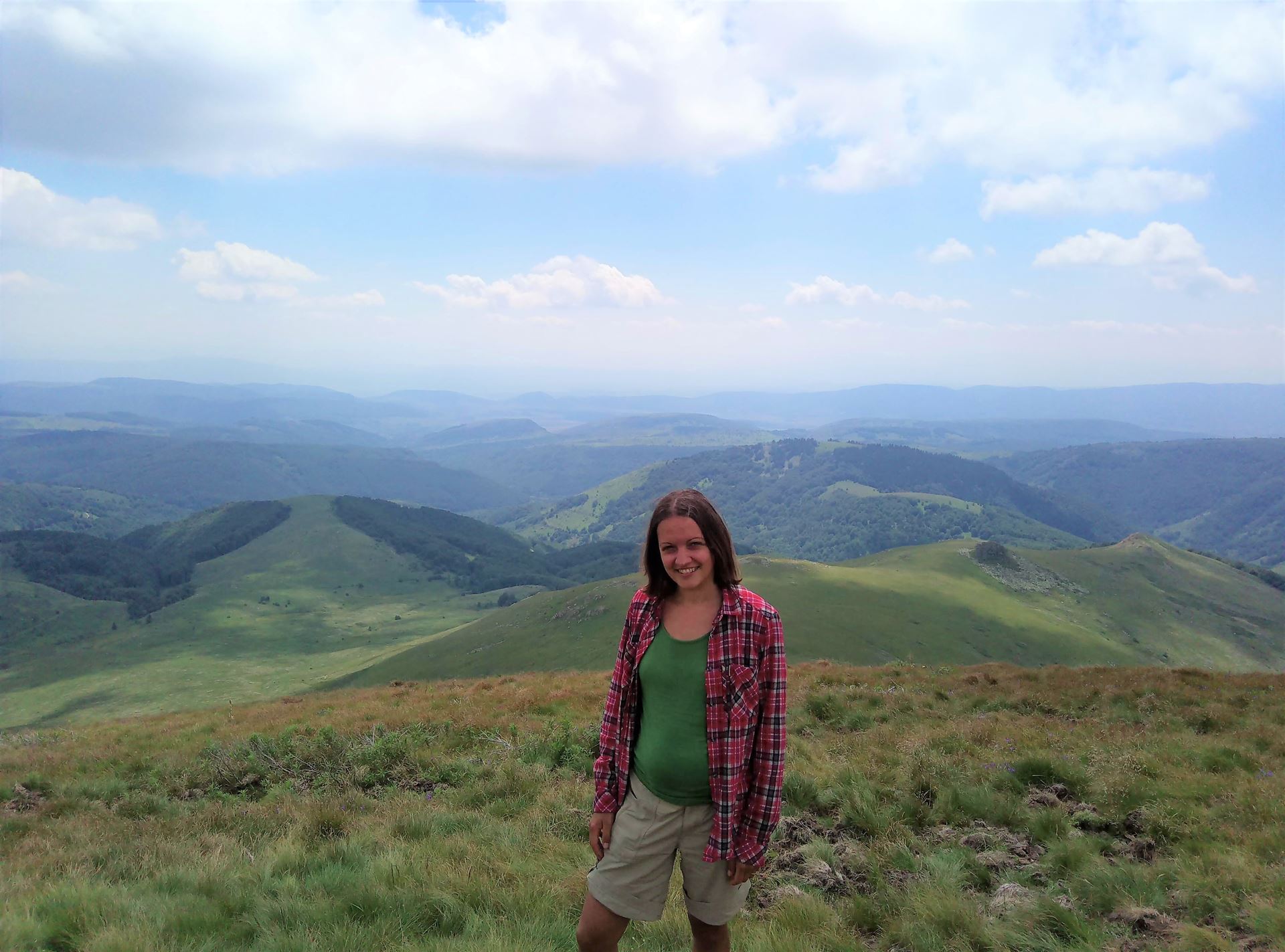Julia Velkova (born 1982) is a media and communications scholar and post-doctoral researcher at the University of Helsinki, where she teaches and researches on aspects of datafication, algorithmic cultures, digital waste and media infrastructures. Julia is currently Vice Chair of the Media Industries and Cultural Production section of ECREA. Between 2016 and 2018 she was the YECREA representative of the section.
What are your hobbies outside academia?
I like sports and outdoor activities. I try to play tennis once a week, and I have engaged a little bit in orienteering since my son got interested in it. During the winter, my favourite activity is to skate on the lakes in Sweden, but this year there was too little safe ice to do it as much as I would have wanted to. During the summer I like hiking in the mountains.
What inspired your interest in hiking?
I grew up in Bulgaria where high mountains are everywhere. It is very common to hike there from an early age, as a family activity and later as part of youth life – it requires little planning and little budget. My parents used to bring me and my sister on hikes frequently on weekends at the Vitosha mountain near Sofia, Bulgaria. Later on I started going with friends to other mountains as well. In a sense, I grew up in an environment where hiking and mountains were a natural part of a regular week and of social activities. So, I never really had to ‘find’ inspiration for it – it was a natural part of life. This is something which I often miss in Sweden where I live and where it takes about seven-eight hours of driving from Stockholm to get to the mountains. One can go easily and spontaneously to a forest, but not a mountain. In Sweden, hiking trips require planning and preparation.
What was the most difficult hiking trail you took? Why was it difficult?
It was in 2006 when I went on a hiking trip on the 600km-long European trail from the Kom Peak in Serbia to Cape Emine on the Black Sea coast. The hiking trail follows the ridge of the Balkan mountains in Bulgaria through very different, picturesque landscapes. I would not have dared to do this trip alone, so I joined a group. It was a difficult hike because it required a lot of mental and physical endurance to manage walking a distance between 30 km and 60 km a day, 12-14 hours every day during a 16-day period in changing weather conditions which could vary from snow and hail to 30-degree heat depending on the altitude. I was not sure whether I would manage to finish it, but I did and it was a memorable journey. I repeated part of this hike last summer as a celebration of enduring and successfully defending my PhD. I hope to have the time and chance to hike in Slovenia in the not too distant future – the mountains there are really spectacular.

Would you say that hiking and academic work are a good combination? Why?
I was surprised to find out how many women in academia do hiking – it seems to be rather common. I find hiking much more pleasant and energy-boosting than, say, going to the gym. The creative energy and endurance that academic work requires can not emerge only from sitting in an office and interacting with colleagues, at least not for me. Hiking or generally, outdoor activities give me energy, and both detach me from the everyday academic work but also boost new creative ideas. I wish I could do it more often. At the moment my children are still too small to do a more ambitious hiking trip, but I am looking forward to some easy family hikes this summer in the North in Sweden.
Has hiking ever conflicted with your academic schedule?
Not really. Of course, it happens that I get emails with requests to submit an abstract for a conference or revisions for a journal article while on a hike, but it has always sorted itself out in the end.
Would you recommend your hobby/hobbies to other academics?
Yes, for sure. Hiking, ice-skating, tennis – any sort of outdoor, physical activity in fresh air and outside of the city is great!
Jelena Kleut